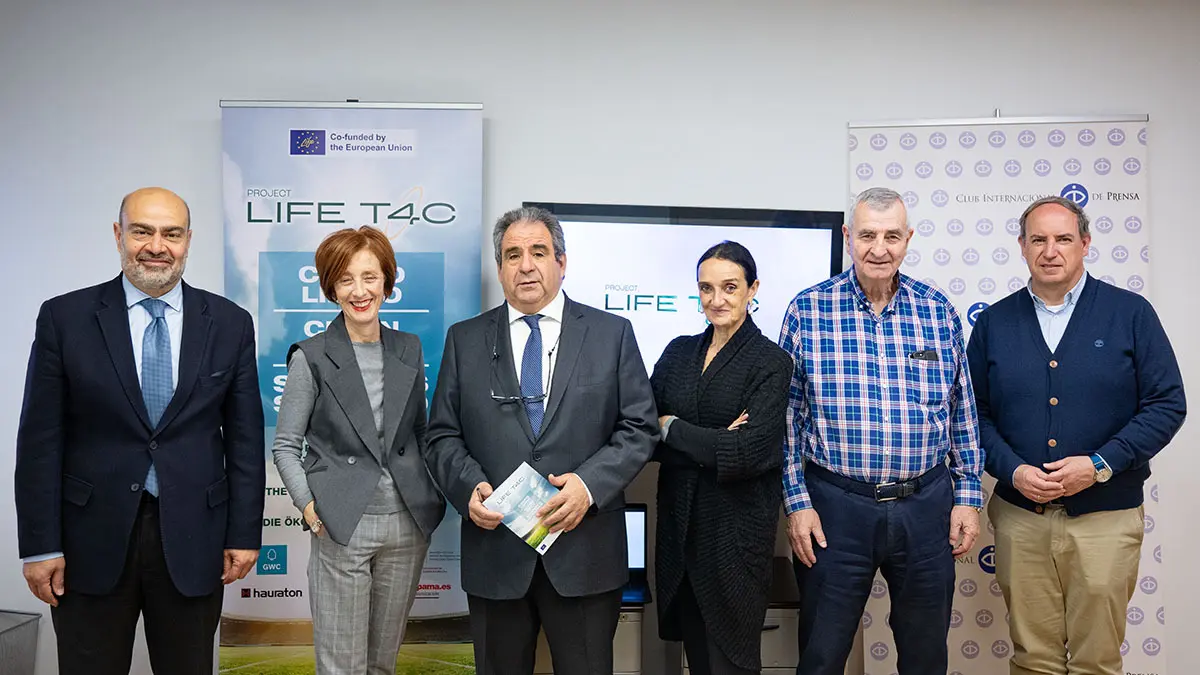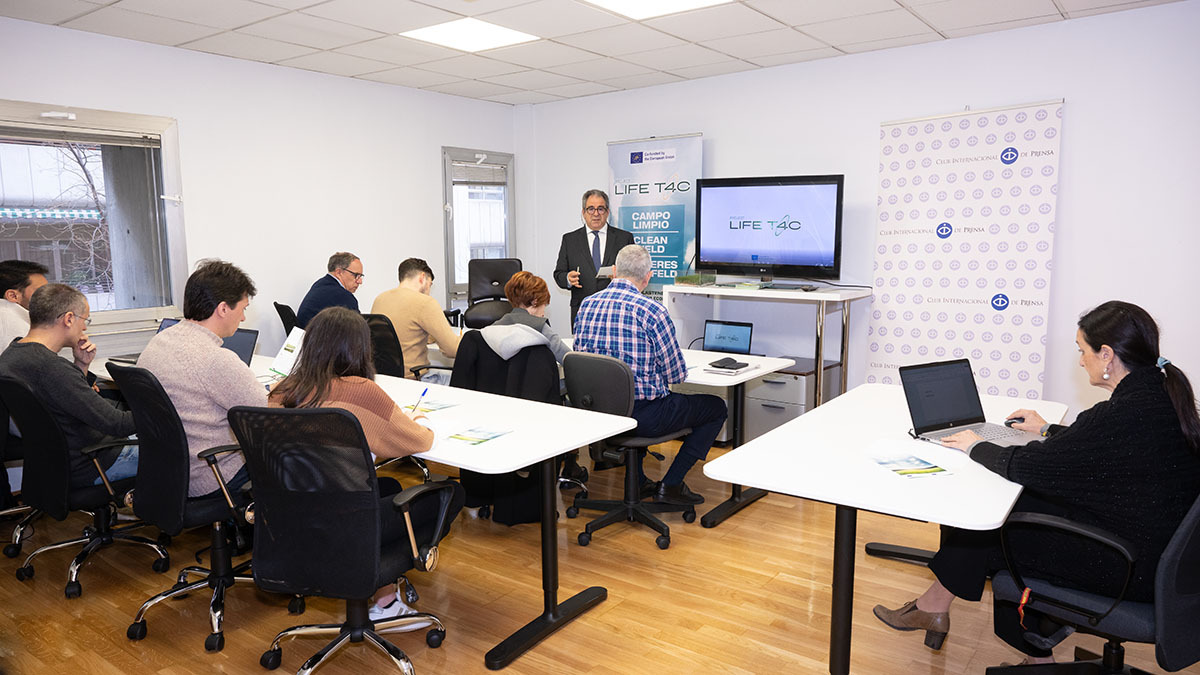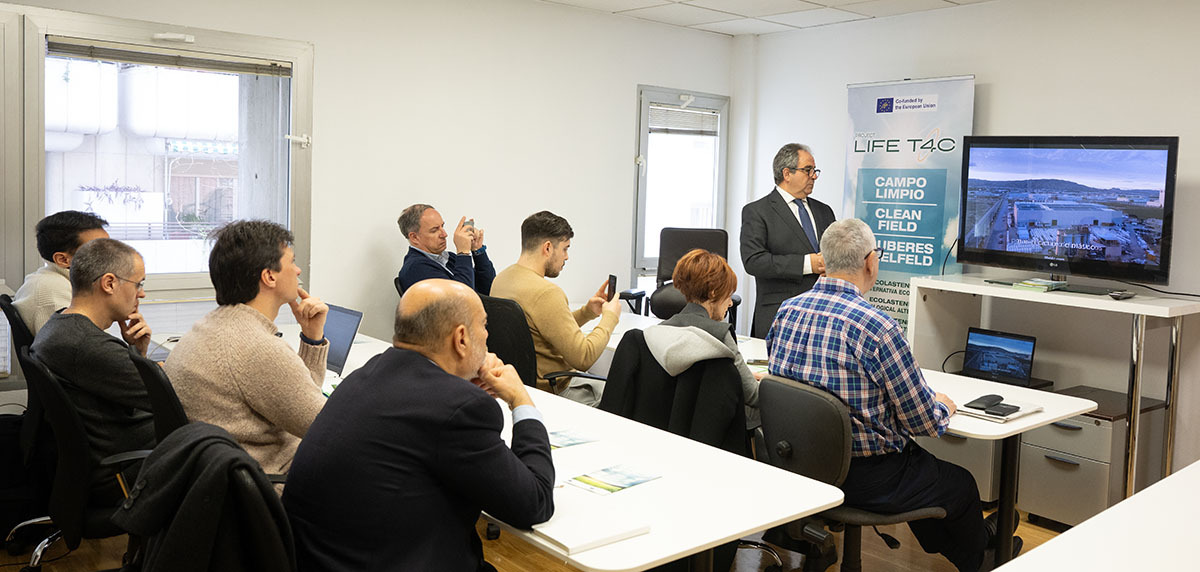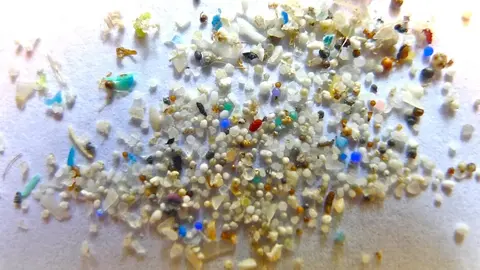The International Press Club hosts the presentation of the new sustainable solution for rubber-free artificial turf
The LIFE T4C project, funded by the European Union, proposes a sustainable and recycled material as an alternative to banned microplastics such as rubber

The International Press Club hosted a new media presentation of the LIFE T4C project, the sustainable alternative to rubber in artificial turf pitches.
The project was presented by Javier Fernández Arribas, director of Atalayar and Espama Comunicación, a company that is part of the consortium, together with five other Spanish and German companies.

Spanish-German consortium
As Javier Fernández Arribas explained to those present, the project is made up of a total of six Spanish and German companies. On the Spanish side, in addition to Espama Comunicación, the project also involves Green World Compounding, Grupo Igoid and Sports & Landscape.
Green World Compounding, located in Alhama de Murcia, is a leading company in the sustainability of the plastics sector. It specialises in the recovery and valorisation of plastic waste, especially of agricultural origin, and is responsible for the design and manufacture of Ecolastene, the material set to replace polluting rubber as the substrate for new artificial turf sports fields.
The Igoid Group is a research group from the University of Castilla-La Mancha specialising in the analysis and certification of sports facilities and performance, and one of only four artificial turf research institutions in the world to be certified by FIFA itself.
The consortium also includes the company Sports & Landscape, which specialises in the installation and recycling of sports facilities, particularly football pitches.
On the German side, the consortium includes Polytan, one of the world leaders in soft-impact sports flooring and highly developed synthetic turf systems; and Hauraton, a company specialising in rainwater management that designs solutions for drainage, treatment, infiltration and water retention.
Sustainable alternative to rubber
As Fernández Arribas explained to the journalists present, 'this project, funded by the European Union, was launched in September 2023 and its objective is to find a sustainable alternative to the rubber substrate that, as of today, is present in artificial turf sports fields and which, according to European regulations on microplastics, should be phased out within eight years, due to its toxicity and the fact that it is a highly polluting element’.
The alternative to this material, which has been used for years as a substrate for artificial turf football pitches, has been developed by the aforementioned Green World Compounding, which specialises in recycling and reusing agricultural plastics.

‘Green World Compounding has designed a product, Ecolastene, which replaces rubber particles considered to be microplastics. It is a compound obtained from the recycling of agricultural plastics, which is non-toxic, sustainable and can be recycled at the end of its useful life’, explained the head of Espama Comunicación.
This substrate serves to give artificial turf elasticity, so that the ball bounces better and the playing surface is in optimal condition, both from the point of view of the game and from the point of view of safety, to avoid injuries to the players.
Once the consortium has finished developing both this product and the appropriate grass fibres for the pitch, the first test fields will be installed (the first of which is already under construction in the city of Toledo), where the Igoid Group will carry out the relevant tests to certify that they are optimal for the practice of the sport at all levels, from school to elite.
The aim is to propose an alternative to current artificial turf football pitches, which, as established by the European Union, must be dismantled at the end of their useful life and replaced with ones that do not contain microplastics, as indicated in European Commission Regulation EU 2023/2055.









